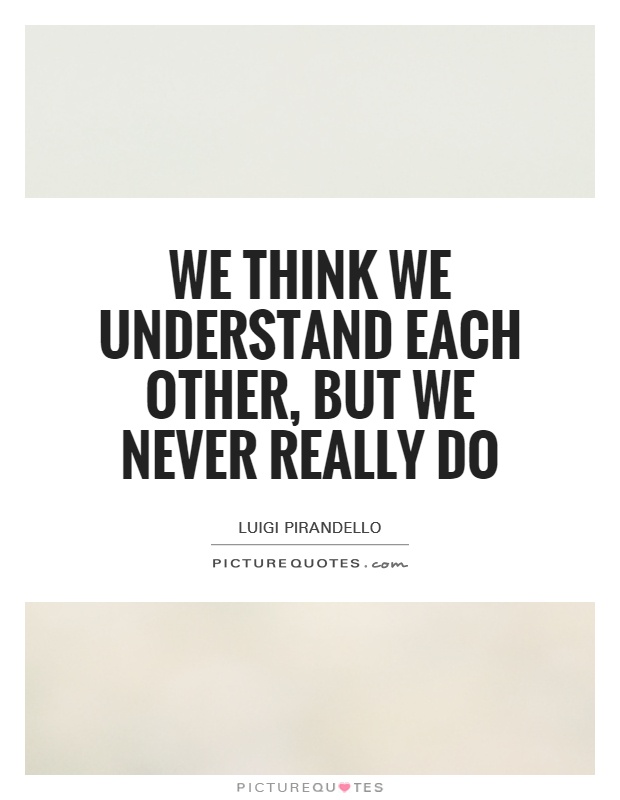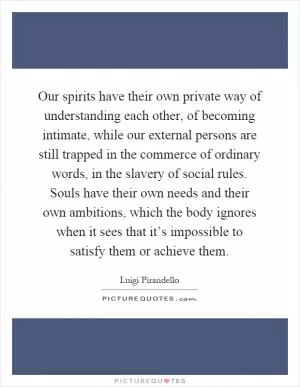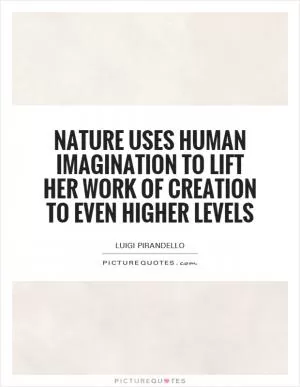We think we understand each other, but we never really do

We think we understand each other, but we never really do
Luigi Pirandello, the renowned Italian playwright and novelist, often explored the complexities of human relationships and the elusive nature of true understanding in his works. One of his most famous plays, "Six Characters in Search of an Author," delves into the idea that despite our best efforts, we can never truly understand each other.In the play, six characters interrupt a rehearsal of a play, claiming that their story has been left unfinished by their author. As the characters interact with the actors and director, it becomes clear that their perspectives and motivations are vastly different from those of the people around them. Despite their attempts to communicate and make themselves understood, they are ultimately unable to bridge the gap between their own reality and that of the others.
This theme of miscommunication and misunderstanding is a recurring motif in Pirandello's work. He often portrayed characters who are trapped in their own subjective experiences, unable to fully connect with those around them. In his novel "One, No One, and One Hundred Thousand," the protagonist struggles to understand his own identity as he is confronted with the myriad ways in which others perceive him. This leads to a profound sense of alienation and isolation, as he realizes that he can never truly know himself or anyone else.
Pirandello's exploration of the limitations of human understanding reflects a deep skepticism about the possibility of true communication. He suggests that our perceptions are shaped by our own biases and preconceptions, making it impossible to see the world from another's point of view. This theme is particularly relevant in today's world, where social media and technology have created new barriers to genuine connection and empathy.












 Friendship Quotes
Friendship Quotes Love Quotes
Love Quotes Life Quotes
Life Quotes Funny Quotes
Funny Quotes Motivational Quotes
Motivational Quotes Inspirational Quotes
Inspirational Quotes